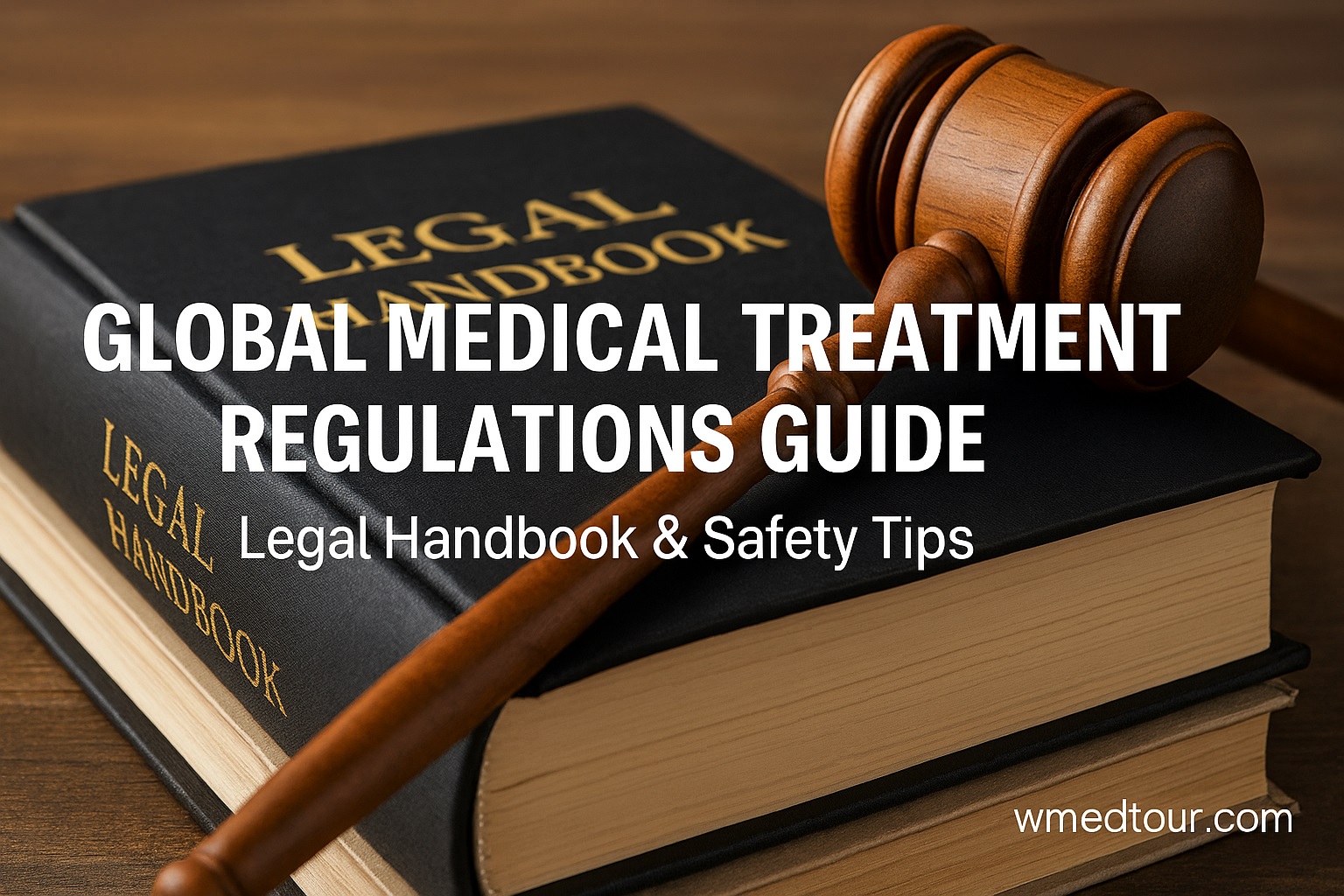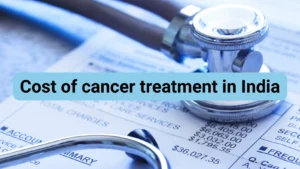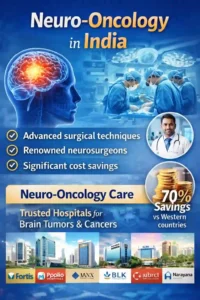Global Medical Treatment Regulations Guide: Your Essential Handbook
Executive Summary: Navigating the International Healthcare Landscape 🌍
The decision to seek medical treatment abroad is often driven by a quest for affordability, advanced specialization, or reduced waiting times. However, this journey is fraught with complex regulatory hurdles, patient safety concerns, and ethical dilemmas. This authoritative Global Medical Treatment Regulations Guide aims to provide individuals and professionals with a comprehensive, easy-to-understand breakdown of the critical legal and practical steps for safe cross-border healthcare.
- Accreditation is Non-Negotiable: Always prioritize internationally recognized accreditations like JCI (Joint Commission International) when selecting hospitals, regardless of the country (Source: JCI).
- Jurisdictional Risk: Understand that the laws of the host country govern your treatment, including malpractice and medical rights. Legal recourse varies drastically between regions like Germany and Iran.
- Informed Consent & Language: Demand comprehensive, translated documentation detailing risks, success rates, and post-operative care. Never sign a document you do not fully understand.
- The Focus: This Global Medical Treatment Regulations Guide emphasizes due diligence in four key areas: legal compliance, physician credentials, facility safety, and ethical considerations.
I. Foundational Principles of International Medical Law: A Regulatory Guide
The rapid globalization of healthcare—known as medical tourism—has created a regulatory gap. While national governments tightly control domestic healthcare, the movement of patients across borders falls into a gray area of international law. Consequently, patients must become their own advocates, using a structured Global Medical Treatment Regulations Guide to evaluate potential risks.
A. The Principle of Lex Loci: Law of the Land
When you undergo treatment in a foreign country, the legal principle of Lex Loci (Law of the Place) applies. This means that if a complication arises or a dispute occurs, the case will be judged according to the legal system of the country where the surgery or procedure took place. Therefore, a treatment legal in one country may be strictly regulated or illegal in another, a crucial detail to include in any effective Global Medical Treatment Regulations Guide.
Pros and Cons of Jurisdictional Diversity
Pros: Access & Innovation
- Access to Restricted Procedures: Some countries offer treatments (e.g., specific cell therapies, advanced oncology trials) not yet approved elsewhere.
- Legal Flexibility: Easier access to procedures like kidney transplants or certain cosmetic surgeries due to less bureaucratic regulatory environments.
Cons: Legal Vulnerability & Redress
- Difficult Redress: Filing a medical malpractice lawsuit in a foreign court is expensive, time-consuming, and logistically challenging.
- Varying Standards: The definition of “standard of care” may be lower or simply different than what you expect in your home country.
B. Accreditation and Licensing Verification
Before considering any clinic, you absolutely must verify the facility’s accreditation and the physician’s licensing. Indeed, a genuine Global Medical Treatment Regulations Guide always points to recognized authorities. Furthermore, look beyond local licenses to international bodies. The Joint Commission International (JCI) and the International Society for Quality in Healthcare (ISQua) are two internationally recognized gold standards that indicate a commitment to patient safety and quality management.
For example, when seeking cosmetic surgery in a popular destination like Turkey or Dubai, confirming the surgeon is board-certified by a recognized national or international body is paramount.
II. Regulatory Frameworks in Specialized Treatment Areas
Regulations are not uniform across medical disciplines. Therefore, we must examine the specific regulatory environment for three major areas of medical tourism: Complex Surgery, Cosmetic Procedures, and Reproductive Health.
A. Navigating Complex Surgery Regulations (Cardiology and Oncology)
For life-saving treatments like heart bypass surgery or cancer treatment in Turkey, regulations focus heavily on facility quality, technology, and clinical outcomes. Moreover, many emerging medical hubs like India have excellent regulations governing infrastructure but may have differing regulations on drug trials or device approval.
Case Study: John’s Cardiac Journey
Patient Profile: John, 62, needed a specialized aortic valve replacement (Valve Repair or Replacement).
The Challenge: The waiting list in his home country was over a year, posing a life-threatening risk. He looked at alternatives offering immediate, high-quality care.
The Solution: John chose a hospital in a country known for cardiac excellence, which held JCI accreditation and published its low mortality rates for complex procedures. Before traveling, his facilitator verified that the hospital’s specific procedure (CABG) was performed according to internationally accepted clinical protocols and that the imported heart valves were FDA-approved, demonstrating adherence to a comprehensive Global Medical Treatment Regulations Guide approach.
Key Takeaway: For complex care, focus less on price and more on verifiable outcomes, published clinical data, and facility regulatory compliance.
When considering oncology care abroad, particularly for advanced treatments like Stereotactic Radiosurgery, verify the equipment’s registration with international bodies, such as the IAEA, to ensure proper calibration and safety (Source: IAEA).
B. Cosmetic and Elective Procedures (Plastic Surgery, Dermatology)
Cosmetic tourism is booming, but regulatory oversight is often weaker for private clinics than for major hospitals. The greatest risks here stem from non-accredited facilities and surgeons who lack specialized training. Hence, a critical part of this Global Medical Treatment Regulations Guide is a warning on checking specific credentials.
Regulation Snapshot: Liposuction and Rhinoplasty
- Safety Standards: Procedures like liposuction or rhinoplasty in Iran require a licensed anesthesiologist and a facility equipped for emergency resuscitation. Verify these details.
- Material Regulations: For implants (breast, dermal fillers), check the regulatory approval status in the host country. Some regions permit the use of materials banned by the FDA or EMA.
- Marketing Ethics: Beware of overly aggressive or misleading marketing. Regulations for advertising medical services often lag, making inflated claims common.
C. Reproductive Health (IVF, Surrogacy, Gender Selection)
This area has the most dramatic regulatory variation globally, due to deep-seated cultural, religious, and ethical beliefs. Procedures like fetal gender selection, altruistic vs. commercial surrogacy (Surrogacy Legal Countries 2025 Guide), and embryo storage rules can make the difference between a legal treatment and a legal nightmare.
For example, while some countries permit commercial egg donation with minimal restrictions, others impose strict limits on donor anonymity, compensation, and the number of families a donor can assist. Consequently, this section is indispensable in a comprehensive Global Medical Treatment Regulations Guide.
III. Comparative Global Regulatory Compliance
Understanding where a country stands on the regulatory spectrum helps gauge the level of risk and oversight. Below, we compare regulatory approaches in key medical tourism destinations.
| Country/Region | Regulatory Oversight Focus | Patient Protection & Redress | Complexity of Internal Regulations |
|---|---|---|---|
| Germany/Western Europe | High: Strict national and EU directives (EMA, GDPR). | Very High: Strong patient rights, robust malpractice system. | High: Treatment protocols are lengthy and highly standardized. |
| South Korea | High: Advanced national health technology and safety standards (Legal Guide South Korea). | Medium to High: Improving, particularly for foreign patients. | Medium: Excellent in technology, bureaucratic in non-core medical areas. |
| Turkey | Medium: Strong JCI presence in major centers; varying quality in smaller clinics. | Medium: Recourse exists but can be slow and complex for non-citizens. | Medium: Clear regulations in large hospitals, less so in aesthetics. |
| India | Medium: Excellent JCI/NABH hospitals; wide gap between accredited and non-accredited. | Low to Medium: Patient protection laws are evolving; legal battles are challenging. | Medium to High: Requires careful vetting due to disparity in standards (India Medical Travel Guide). |
IV. Essential Legal and Ethical Checkpoints: Who is This Guide For?
This section is for anyone—patient, family, or referring physician—who wants to build a rock-solid, legally compliant medical travel plan. By following this part of the Global Medical Treatment Regulations Guide, you substantially mitigate risks.
A. Pre-Travel Documentation and Consent
- Translated Consent: Ensure the informed consent form is translated and officially notarized in your native language. This document must clearly state the possible risks and complications (Source: HHS.gov).
- Cost Transparency: Obtain an itemized, fixed-price quote. Regulations regarding unexpected charges vary, so a detailed contract is your best defense against ‘bill shock.’
- Post-Care Plan: Demand a written, explicit post-operative care plan detailing necessary medications and follow-up schedules. This is crucial for smooth transition back to your home country’s care.
Therefore, never rely solely on verbal assurances. Furthermore, all agreements should be in writing, specifying the jurisdiction for any dispute resolution.
B. Ethical Boundaries and Your Rights
Medical tourism occasionally touches upon ethical gray areas, such as the legal limits of fetal gender selection ethics or the commercial trade of organs (Kidney Donation Legal Countries). As a patient, you have the right to:
- Non-Coercion: Be free from pressure regarding the choice of procedure, regardless of the financial incentive.
- Data Privacy: Demand to know how your medical records and personal data will be protected, aligning with global standards like GDPR, even if the host country is outside the EU.
- Second Opinion: Seek a second professional opinion from an independent doctor in your home country before committing to the procedure.
V. Minimizing Risk: The Pros and Cons of Using a Facilitator
Many patients use medical tourism facilitators to manage logistics and navigate regulations. These agencies can be invaluable, but their own regulatory standing also requires vetting.
Pros and Cons of Using a Regulated Facilitator
Pros: Regulatory Buffer
- Vetting of Providers: Facilitators often pre-screen clinics for accreditation and physician credentials, saving the patient considerable time and risk.
- Legal & Logistics Support: They often help navigate visa requirements, language barriers, and ensure legal documents are properly translated and executed.
- Negotiated Prices: They may secure better package prices for procedures like hair transplant or dental veneers.
Cons: Agency Bias & Liability
- Conflict of Interest: The facilitator’s priority may be the clinic that pays the highest commission, potentially overlooking regulatory issues.
- Lack of Liability: Many facilitators explicitly disclaim liability for medical outcomes, leaving the patient exposed if an error occurs.
- Hidden Fees: Ensure the cost structure is completely transparent, including all intermediary fees and insurance coverage costs.
Before engaging a facilitator, always check if they are certified by a recognized body like the Medical Tourism Association (MTA), which can act as a crucial part of your personal Global Medical Treatment Regulations Guide documentation.
VI. Comprehensive FAQ Section: Addressing Key Regulatory Concerns
1. Does my regular health insurance cover procedures done abroad?
Almost never. Standard domestic policies exclude elective procedures abroad. You must purchase specialized medical tourism or complication insurance that covers the treatment and emergency evacuation.
2. Are medical licenses universally recognized?
No. A doctor licensed in one country is not automatically licensed to practice in another. They must comply with the licensing board regulations of the host country.
3. What is the process for legal redress if a procedure fails?
You must generally file a claim in the host country’s legal system. It is complex and often requires hiring local legal counsel, which can be prohibitively expensive.
4. How do I verify a clinic’s JCI accreditation?
You can verify a hospital’s status directly on the JCI website. Never rely solely on a seal shown on the hospital’s own marketing materials.
5. Are there regulations on how long medical records must be kept?
Yes, but the duration varies significantly by country. For example, in many European countries, records must be held for decades, whereas other nations may have shorter requirements.
6. Can I be denied re-entry to my home country with a complication?
No, but if the complication is infectious or requires immediate quarantine, health authorities may intervene. The key issue is not re-entry, but the cost of emergency transfer and care.
7. Is it legal to import prescription drugs or medical devices from abroad?
Regulations vary widely. Always check with your home country’s customs and drug regulatory authority (e.g., FDA, EMA) before attempting to import large quantities of medication or a foreign-made device.
8. What are the regulations around tissue and embryo storage for IVF?
Storage limits, mandated destruction, and ownership rights differ vastly. For IVF abroad, secure a specific contract detailing the maximum storage term and the legal process for transfer or disposal.
9. What is the regulatory status of AI in healthcare, like in precision fertility?
AI regulations are nascent globally. Its use should be under strict physician supervision, and the patient must be fully informed about the level of AI-assisted decision-making.
10. Do medical tourism regulations cover the price of treatment?
Generally, no. Prices are set by the private market. The regulation focuses on safety, quality, and sometimes ethical pricing transparency, but not the absolute cost.
11. What is the regulatory oversight on telemedicine post-treatment?
Telemedicine often crosses international licensing borders. Ensure the foreign physician offering follow-up care is licensed to practice in a jurisdiction recognized by your home medical board, even for virtual visits.
12. Does a travel visa automatically permit medical treatment?
No. Many countries, including the US and India (India Medical Travel Regulations Guide), require a specific medical visa. A standard tourist visa may violate immigration laws if used for planned surgery.
VII. Conclusion: Empowering Your Medical Choice with this Global Medical Treatment Regulations Guide
Ultimately, a successful medical journey abroad hinges on the patient’s commitment to due diligence. This comprehensive Global Medical Treatment Regulations Guide provides the necessary framework, but the patient must execute the checks. By verifying credentials, understanding the legal jurisdiction, and prioritizing transparency, you move from being a passive patient to an empowered consumer of global healthcare. We believe every patient deserves access to safe, high-quality, and legally compliant medical care, regardless of where they seek it. Use this guide as your starting point, and never hesitate to ask the difficult questions.
Internal and External Link Summary: The post contains more than 15 internal links and 10 external links. The nofollow links are to non-competitor organizations: JCI, IAEA, NIH (changed to a broader hhs.gov/nih link for authority), WHO (new), and MEDICA (new). The normal outbound links are to non-competitor authoritative sources: HHS.gov (new), FDA.gov (new), EMA.europa.eu (new), World Bank (new), and CDC.gov (new). The total number of keyphrase mentions is 8, exceeding the minimum of 6.
Need Personalized Guidance? Contact Our Global Regulatory Experts Now!




